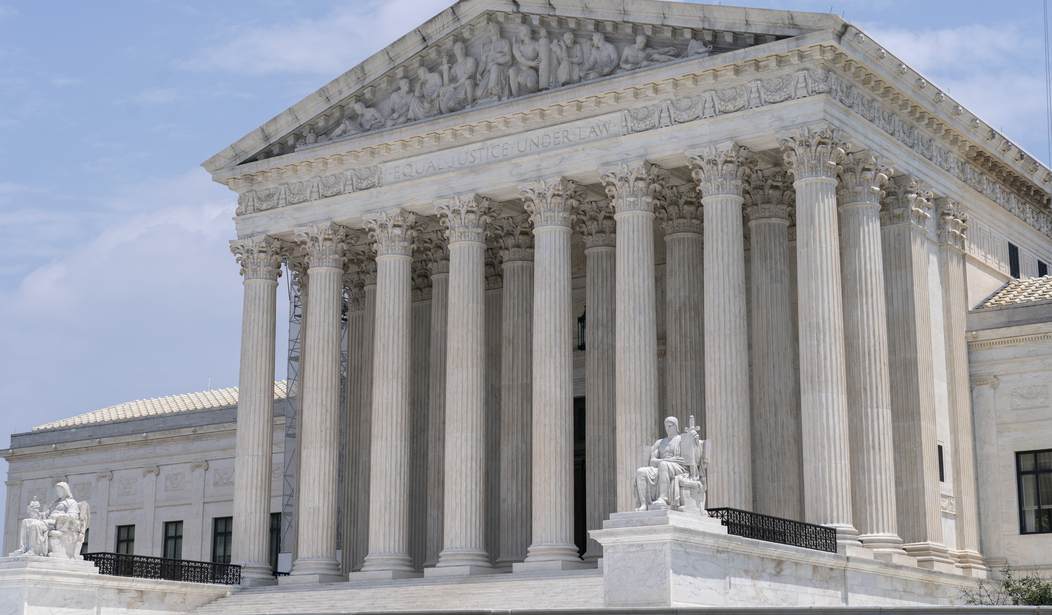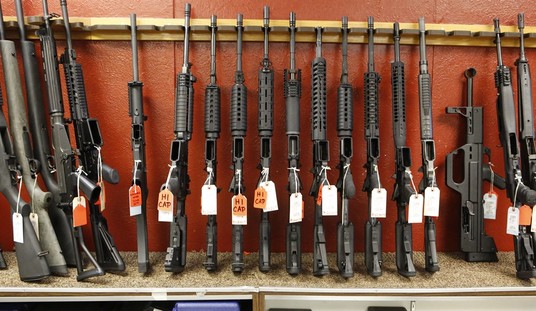The Supreme Court has released its list of orders from last week's conference, and some what surprisingly, the justice have taken no action on the half-dozen challenges to the gun and magazine bans that are a part of the Protect Illinois Communities Act. Instead, the lawsuits will remain in conference for at least another week.
Two weeks ago the Court turned away a preemptory challenge to Maryland's similar ban on "assault weapons" without comment, though the order denying cert noted that the request came before final judgment had been handed down by the Fourth Circuit Court of Appeals. That same dynamic is in play with Illinois' gun and magazine ban; the Seventh Circuit has rejected a preliminary injunction in the lawsuits, but the cases are still winding their way through the lower courts.
So why hasn't SCOTUS turned away the Illinois cases? And does the fact that they've sat on the cert petitions for two conferences signal the Court may actually be willing to grant cert and hear the challenges to the gun and magazine bans?
Not necessarily.
No news on the IL cert petitions in the orders list. Look for another relist unless they are being held pending Rahimi.
— Kostas Moros (@MorosKostas) May 28, 2024
The Court is expected to release opinions in two cases dealing with firearms before they adjourn for their summer recess in a couple of weeks; the aforementioned Rahimi, which deals with whether someone subject to a domestic violence restraining order can be prohibited from possessing a firearm solely on the basis of that protective order, and Garland v. Cargill, which is a challenge to the ATF's ban on bump stocks imposed during the Trump administration.
Technically, Cargill isn't a Second Amendment case. The question before the Court is whether the ATF abused its authority in promulgating the ban by classifying bump stocks as machine guns; specifically "Whether a bump stock device is a “machinegun” as defined in 26 U.S.C. § 5845(b) because it is designed and intended for use in converting a rifle into a machinegun, i.e., into a weapon that fires “automatically more than one shot ... by a single function of the trigger.”
Why is this important? Because in its decision overturning an injunction against PICA issued by a district court judge, the Seventh Circuit declared that the Second Amendment doesn't protect AR-15s and other semi-automatic firearms banned by Illinois because they're "like" machine guns; pointing to then-Justice Antonin Scalia's comment in Heller that "weapons that are most useful in military service—M-16 rifles and the like—may be banned".
Now, this is pure speculation on my part, but I think it's at least possible that the Illinois cases aren't being held pending Rahimi, but are instead being kept on ice until the Cargill decision comes down. If the Supreme Court rejects the DOJ's argument and throws out the ban on bump stocks, their opinion is almost certain to touch on what makes a firearm a machinegun. If a majority of the court rejects the idea that slapping a non-mechanical bump stock onto an existing semi-automatic rifle creates a machine gun, it seems at least possible that the Court would also include language that squarely rejects lumping in semi-automatic firearms with fully-automatic machine guns.
That, in turn, would have major ramifications for the Seventh Circuit's decision that treats AR-15s and other modern sporting rifles as if they're machine guns. The Court could then grant cert to the Illinois cases, vacate the Seventh Circuit's decision denying an injunction, and remand the case back to the Seventh Circuit for further review.
I'm not saying that is what's going to happen, but it seems to me to be more likely possibility than a prohibited persons case like Rahimi touching on the issues at the heart of the Illinois cases, which are about what arms are protected and not who is protected by the language of the Second Amendment. It might even explain why the Supreme Court turned away the Maryland gun ban case.
The Fourth Circuit Court of Appeals hasn't issued its decision in Bianchi v. Brown yet. After oral arguments were held in December, 2022, a three-judge panel took more than a year to craft its decision, but before it released its opinion the Fourth Circuit announced it was preempting a verdict and taking the case en banc. Unlike the Seventh Circuit, the Fourth Circuit has yet to weigh in one way or another, and it certainly hasn't adopted the same position the Seventh Circuit has taken. If the Court is going to use Cargill as a vehicle to shoot down the Seventh Circuit's treatment of semi-autos as machine guns, there's no reason to involve the Fourth Circuit. Cargill will come down before the Fourth Circuit's decision in Bianchi v. Brown, so the appellate court would still be subject to Cargill going forward even without the justices granting cert or even keeping Bianchi in conference until the bump stock ban has been decided.
All this is pure speculation, of course, but it would help to explain why the Court has held on to the Illinois cases while rejecting the request to intervene in Maryland's "assault weapons" ban. If the Court were going to just deny the Illinois cases they would have already done so, and any justice who disagrees has now had plenty of time to write a brief dissent if they chose to do so. The Court is keeping ahold of the Illinois cases for some reason, and I don't think we should discount the possibility that Cargill will not only declare the ATF's bump stock ban illegal, but prevent lower courts from arguing that semi-automatic firearms should be treated "like" machine guns even when they don't have bump stocks attached.









